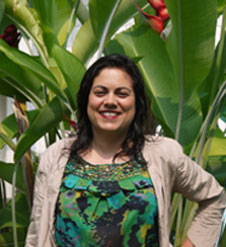
“Applying everything I've ever learnt, and learning a lot more,” has been the challenge for Ayesha Verrall during her fieldwork in Bandung, Indonesia. Ayesha is completing a PhD with the University's Centre for International Health, Department of Preventive and Social Medicine.
“A large field study like this requires careful scientific planning, but you also have to work with staff and colleagues across cultures, manage logistics, and develop new laboratory assays.”
Ayesha graduated from the Dunedin School of Medicine in 2004 and then trained in New Zealand and Singapore as an infectious diseases physician, before starting her current research on innate immune responses to tuberculosis.
“A background in science is clearly important, but you can't be an effective scientist here without also learning a new language, a new way of driving, and learning to laugh when things go wrong.”
Ayesha hopes the combination of fieldwork and detailed laboratory study will open a new field of tuberculosis research on early clearance.
“For years researchers have noticed that some people don't get infected by tuberculosis, even if they're heavily exposed,” says Ayesha. “By understanding how their immune system successfully clears tuberculosis we could find important information for making a TB vaccine. So far nobody has combined a large study with the detailed field and laboratory methods to work out how TB is cleared.”
The research is part of an established collaboration between the University of Otago and an Indonesian University.
“I'm lucky to work with scientists at Universitas Padjadjaran, who are experienced in TB field studies and have developed a good laboratory.”
Ayesha hopes her doctoral studies will lead to further research in tuberculosis immunity when she returns to New Zealand. Her studies are supported by a Health Research Council Clinical Training Fellowship.